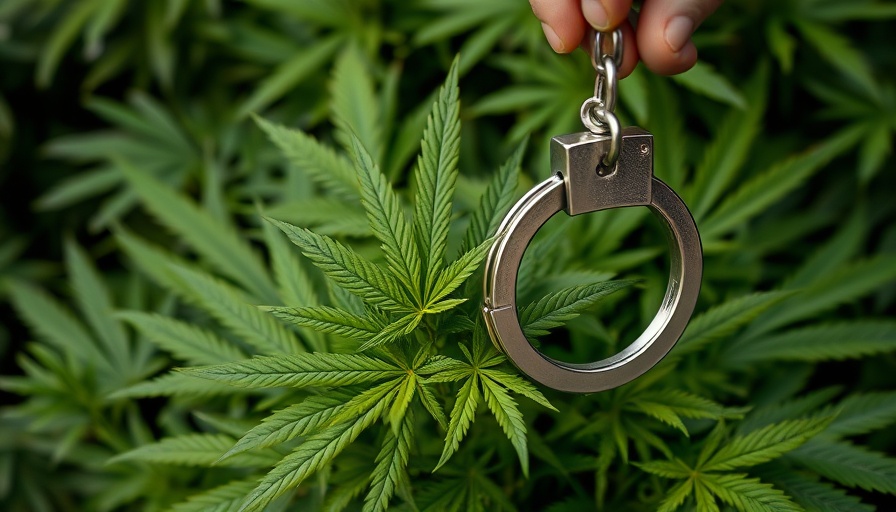
DEA's Cannabis Seizures: An Ongoing Battle Against Legalization
The Drug Enforcement Administration (DEA) has announced the seizure of over 5.3 million cannabis plants in 2024, along with nearly 6,000 marijuana-related arrests. While this represents a slight decrease from previous years, it highlights a persistent effort to clamp down on cannabis production despite the changing landscape of marijuana legalization across the United States.
Understanding the Context of DEA Actions
The latest report from the DEA indicates that marijuana crop seizures rose from a historic low of 8,501 seizures in 2011 to 5,764 in 2024. This raises questions about the efficiency and necessity of such operations, especially considering that most states have legalized cannabis in some form. NORML’s Deputy Director, Paul Armentano, emphasized this contradiction in legal stance vs. enforcement aims, indicating that “considerable time and resources still remain prioritized toward enforcing the failed policy of federal marijuana prohibition.”
Counterarguments: Are Resources Being Wasted?
Despite ongoing federal efforts, public sentiment is shifting towards legalization. A large majority of Americans now support cannabis legalization, with numerous states legalizing it for recreational or medicinal use. The continuous prioritization of eradication reflects a potential misallocation of federal resources. Critics highlight that these arrests generally reflect outdated and ineffective marijuana laws.
The Role of International Trafficking
The DEA has also flagged an increasing concern regarding alleged international involvement in domestic cannabis cultivation, specifically naming Chinese-affiliated operations. However, the total number of operations cited suggests a disproportionate focus relative to the overall number of plants seized. Experts are questioning whether this narrative serves to bolster enforcement budgets or genuine public safety interests.
Connection to Broader Societal Trends
The conflict between federal prohibition and state-level legalization raises significant societal questions. Cannabis not only serves as a medical aid for many but has also propelled economic growth in several states, generating substantial tax revenue and creating jobs. The challenge lies in reconciling these benefits with federal policies that seem antiquated.
Future Insights: What Lies Ahead?
The trajectory of cannabis legislation is indicative of a larger trend toward reevaluating various controlled substances. If the federal government continues its crackdown amidst states' legalization movements, it risks foster public disillusionment with federal authority and could fuel a push for complete legalization federally.
As this complex scenario unfolds, cannabis legalization enthusiasts are urged to engage in advocacy efforts. Understanding the nuances of federal and state interactions concerning marijuana can help shape informed public policy. Stay informed and take action!
 Add Row
Add Row  Add
Add 




Write A Comment